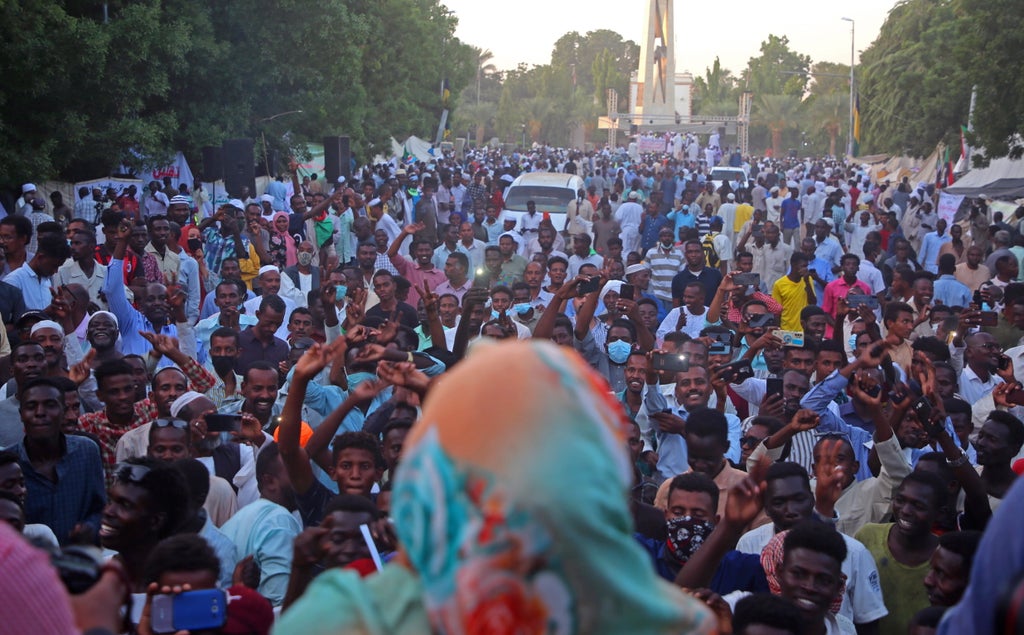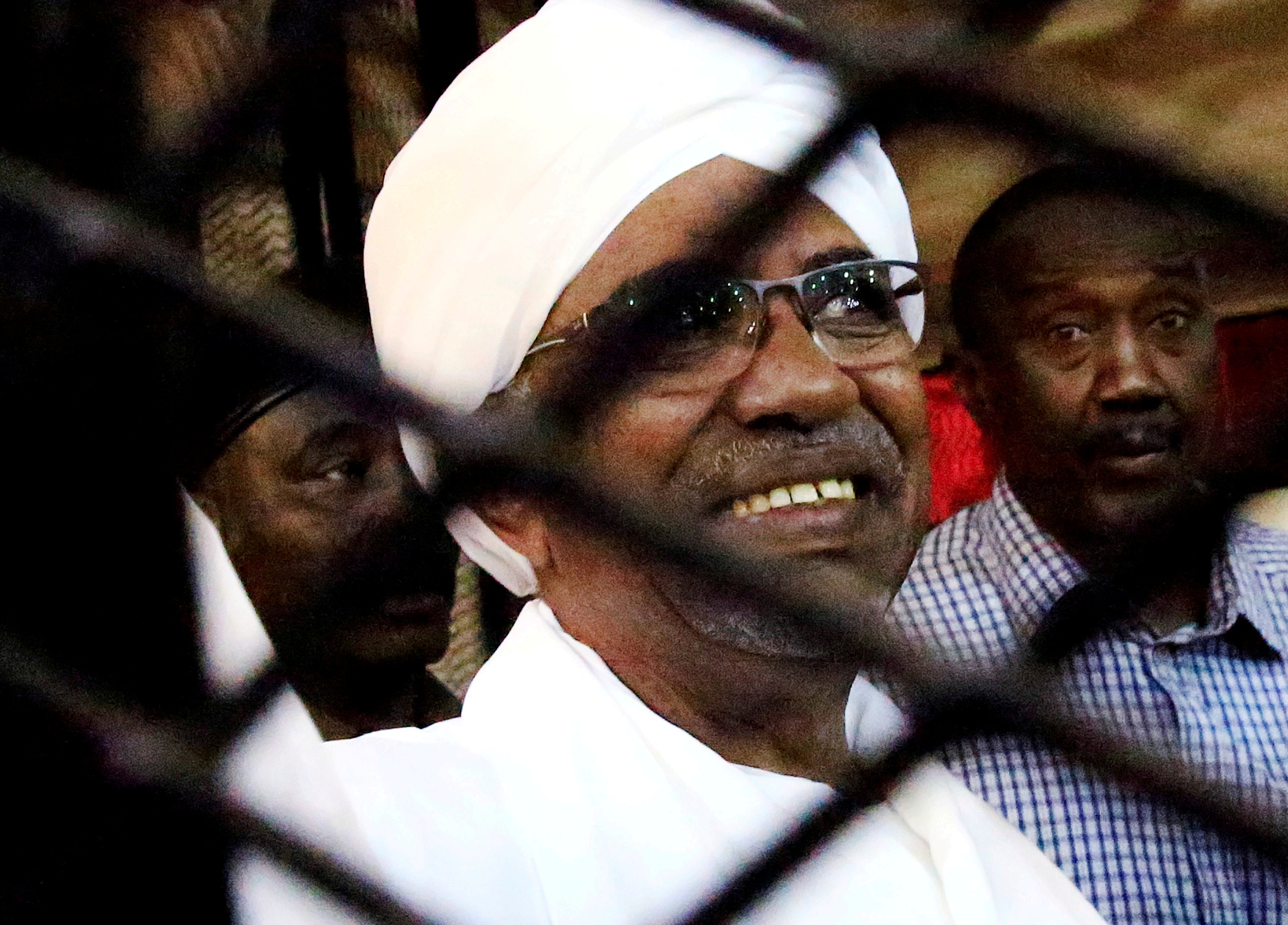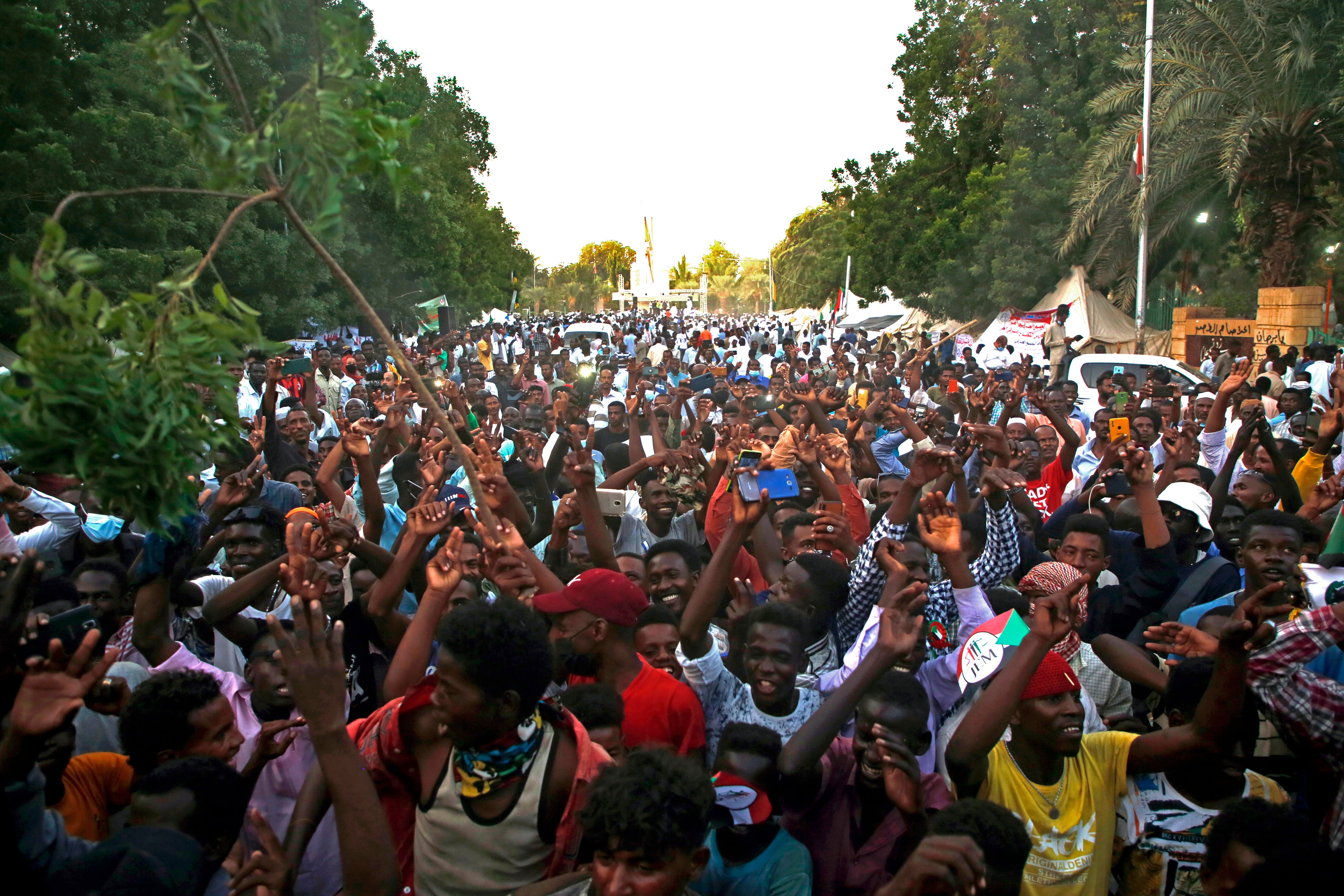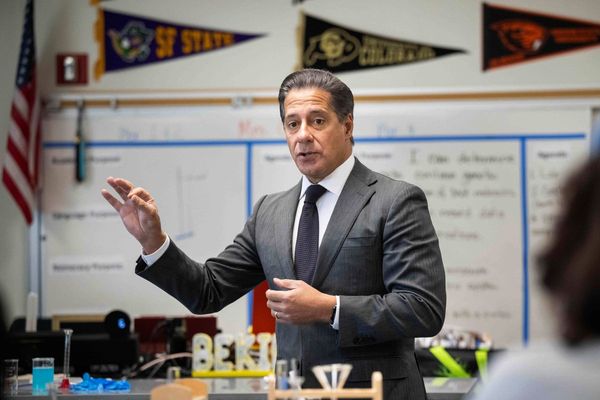
Fears are mounting over the democratic political transition and security in Sudan, as the country witnesses its “worst and most dangerous” political crisis since the 2019 popular uprising that ended former dictator Omar al-Bashir’s 30 years in power.
Divisions and fierce competition between the military generals and their civilian partners in government over power sharing have recently exacerbated the crisis. Pro-military protests, currently leading a sit-in in front of the presidential balance, demand the army carry out a coup and dissolve the cabinet.
General Abdelfattah al-Burhan, the military commander and head of the military-civilian Sovereign Council, stressed that the cabinet should be replaced with a more politically inclusive government. His calls further damaged the already strained relations with the Forces of Freedom and Change (FFC), the civilian ruling camp, since last month coup attempt attributed to al-Bashir supporters.
Burhan and other generals have repeatedly resisted calls from FFC leaders to reform the military, paramilitary forces and other security services which they say is still controlled by al-Bashir Islamist followers. The military countered by suggesting the FFC coalition should itself implement necessary reforms within its ranks.
Observers say military commanders feel nervous about the transition outcome and the fate of their longstanding grip on power.
“The military is concerned that it will lose status and power under a democratic civilian-led government, but also worry more immediately about the prospect of being subject to justice for abuses committed during and after the Bashir government,” said Jonas Horner, senior analyst on Sudan affairs at the International Crisis Group.
The generals are also concerned about “the loss of their dominant and privileged place in the Sudanese economy,” he added.
The country’s constitutional declaration, signed after the uprising, set a date for a handover of the leadership of the Sovereign Council to the civilians for May 2021. However, a peace agreement signed last year reset the clock on the transition and postponed the power delivery.
The relationship between the two sides has always been difficult and dominated by aggressive positioning for control over the main power levers in one of the poorest countries in North Africa. The September coup attempt laid bare, for the first time, a minefield of differences around the military and civilian leaders’ vision for the future of Sudan.
“The coup attempt opened the door for discord, and for all the hidden disputes and accusations from all sides, and in this way we are throwing the future of our country and people and revolution to the wind,” Abdallah Hamdok, Sudan’s civilian prime minister said on the weekend.
Mr Hamdok presented a road map to both sides to end the crisis, which included calling for the end of escalation and one-sided decision-making and a return to a functioning government.
Infighting between the ruling elite has exacerbated an already dire economic situation in Sudan. Last month official data showed inflation slowed for the first time since the transitional period started from 422 per cent in July to slightly over 387 per cent in August.

Critics of the government insist it adopts the wrong policies, and its incompetence caused shortages of fuel, bread, and essential medicines.
Constant hiccups in both the political and economic governance caused rifts between civilian factions in government only to deepen.
“The civilian bloc within the transitional government is suffering from increasingly deep divisions,” Mr Horner told The Independent.
The ongoing rifts among the civilian rank and file, analysts say, could be seen by certain military factions as an opportunity to increase their powers.
Critics accuse the military of playing a divide-and-rule game to weaken the civilians, whose coalition splintered this month into two wings. The new breakaway group urges for a bigger and more central role for the military commanders in determining the transitional period’s future.
“The military was willing to deal with civilian political parties, but when the latter proved disunited, the military shifted to a more assertive approach in terms of pro-actively setting the political agenda and direction for the country. It’s not for nothing that Burhan recently referred to the military as Sudan’s ‘guardian’,” said Yezid Sayigh, a senior fellow leading Civil-Military Relations in Arab States program at Carnegie Endowment for International Peace, a think tank.
Meanwhile, in Eastern Sudan, leaders of the Beja council, a mishmash of tribes and local factions, have seized the country’s biggest port on the Red Sea and blocked the road leading to it. The tribal leaders demand the end of the deprecation of the severely under-developed region and reiterate the military’s calls for the cabinet reshuffle.
The blockade disrupted about $126 million worth of trade, Bloomberg reported. It said transport companies lose amount to about $400,000 a day, citing port officials, shipping companies and labour unions.
Mr Hamdok urged the Beja to end the standoff and engage in direct talks, while other officials in his government accused the military of being the instigator of the crisis.

The port’s closure prompted calls from the US, the UK and Norway for dialogue between the two parties and urged the international community to “support fully the efforts of the Sudanese government to resolve this matter and to end the ongoing blockades,” the so-called Troika countries said in a joint statement.
Envoys from the three countries also said they will arrive in Sudan this week to try to defuse tensions.
“Possibly the civilian’s only hope is strong public messaging from the US administration. The Sudanese military clearly wanted to gain US acceptance so as to be removed from the US list of state sponsors of terrorism and thus win a lifting of economic sanctions and regain access to international banking and markets, which is why they agreed to establish relations with Israel and to transfer military, commercial businesses to government control,” Mr Sayigh said.
US lawmakers restricted military assistance to Sudan in the draft of the Fiscal Year 2022 Appropriations Bills released on Monday and linked it only to the consent of the civilian-led government.
“An unambiguous public stance from the US warning against any form of a military takeover and hinting at the possibility of Sudan losing access to the IMF and World Bank etc., could have a huge effect on the Sudanese military’s behaviour in coming weeks and months,” Mr Sayigh suggested.
In addition to serving as a clear warning to their military rivals, the international support may also embolden the civilians to go a step further and directly lock horns with the military.
The FFC called on its supporters to take to the streets on Thursday to restore the “hijacked” revolution.
Flexing muscles by restoring to mass protests has always been the FFC strategy to confront their military partners and keep the generals at bay.
The expected demonstrations on Thursday would determine whether the divided FFC is still a bulwark for democratic rule in Sudan. But mobilising the masses always comes with the risk of disorder and chaos.
“For the civilian bloc that remains committed to a civilian-led transition, mobilisation of the street remains the best hope for resisting pressure for a greater military role,” Mr Horner said.
“There are concerns that the counter-protest scheduled for Thursday could clash violently with the sit-in currently underway,” he warned.







